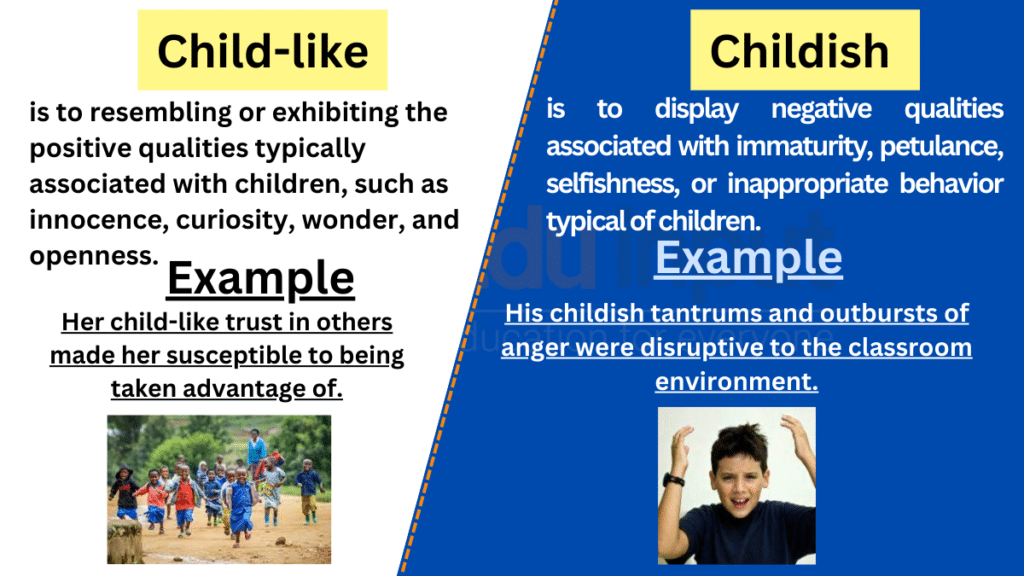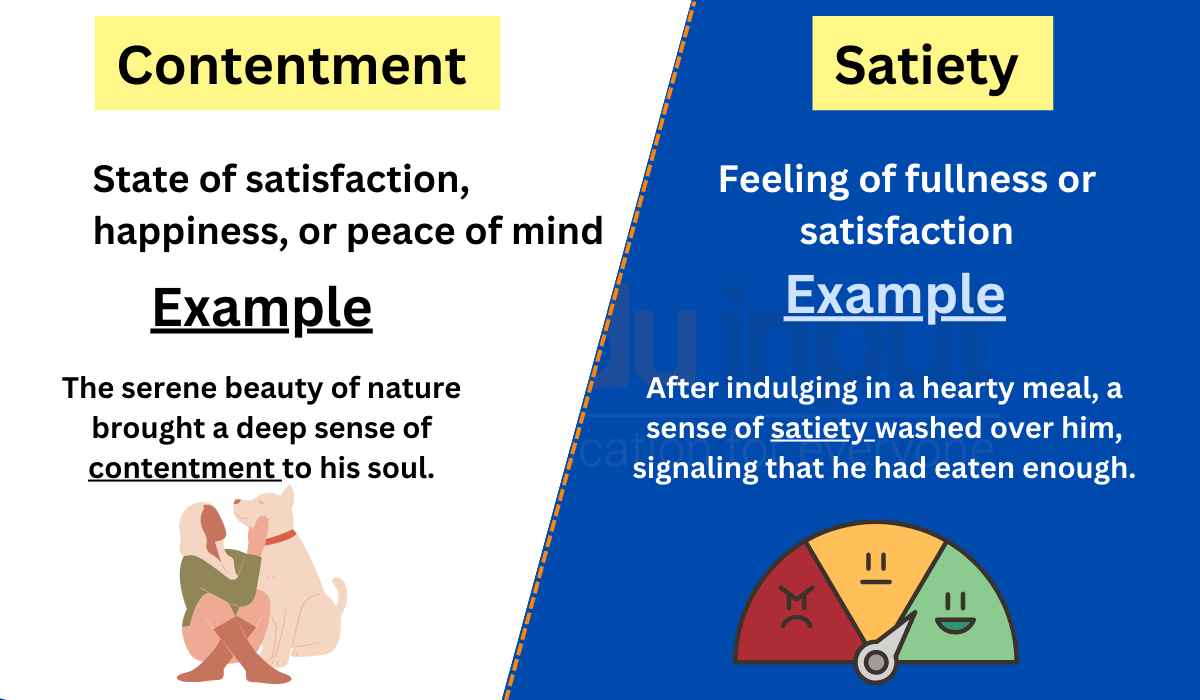Child-like vs. Childish-Difference between and Examples
In the realm of describing behaviors and characteristics associated with children, it is important to differentiate between “child-like” and “childish.” Although these terms may appear similar, they have distinct meanings and implications. In this article, we will explore the differences between “child-like” and “childish” to better understand their usage and connotations. By distinguishing between “child-like” as referring to positive qualities associated with innocence and wonder, and “childish” as denoting negative traits linked to immaturity and petulance, we can effectively communicate our thoughts and observations about individuals’ behaviors. Let’s delve into the contrasts between “child-like” and “childish.”

Meanings and Examples:
Child-like meaning
Child-like is an adjective. The meaning of child-like is to resembling or exhibiting the positive qualities typically associated with children, such as innocence, curiosity, wonder, and openness.
Child-like Examples
a) She had a child-like fascination with the stars, spending hours stargazing and imagining far-off galaxies.
b) His child-like joy was evident as he played with his new toy, completely engrossed in the imaginative world he created.
c) The artist’s childlike drawings captured the essence of innocence and simplicity.
d) The storyteller’s childlike enthusiasm captivated the audience, transporting them to magical realms of imagination.
e) Her child-like trust in others made her susceptible to being taken advantage of.
Childish meaning
Childish is an adjective. The meaning of childish is to display negative qualities associated with immaturity, petulance, selfishness, or inappropriate behavior typical of children.
Childish Examples
a) His childish tantrums and outbursts of anger were disruptive to the classroom environment.
b) It was disappointing to witness his childish behavior, refusing to share and throwing a fit when things didn’t go his way.
c) The team’s childish bickering and name-calling only hindered their progress in finding a solution.
d) Her response to criticism was childish, resorting to personal attacks rather than addressing the issue at hand.
e) The CEO’s childish insistence on having his way created a toxic work environment.
Difference between child-like and childish
| Criteria | Child-like | Childish |
| Meaning | Resembling positive qualities associated with children | Displaying negative traits associated with immaturity |
| Part of Speech | Adjective | Adjective |
| Pronunciation | ˈtʃaɪldˌlaɪk | ˈtʃaɪldɪʃ |
| Usage | Describing innocence, curiosity, wonder, and openness | Describing immaturity, petulance, selfishness, or inappropriate behavior |
Usage in a Paragraph
Her child-like wonder and curiosity about the natural world were contagious. She approached each new discovery with excitement, embracing the joy of learning and exploration.
His childish behavior during the meeting was both unprofessional and disruptive. He made inappropriate jokes and interrupted others, derailing the productive discussion.
By understanding the differences between “child-like” and “childish,” we can effectively communicate our observations and perceptions about individuals’ behaviors. “Child-like” describes positive qualities associated with children, such as innocence, curiosity, wonder, and openness. On the other hand, “childish” denotes negative traits linked to immaturity, petulance, selfishness, or inappropriate behavior. By using these terms accurately, we can navigate discussions about innocence and immaturity and appreciate the positive aspects of child-like qualities while recognizing the negative implications of childish behavior.







Leave a Reply